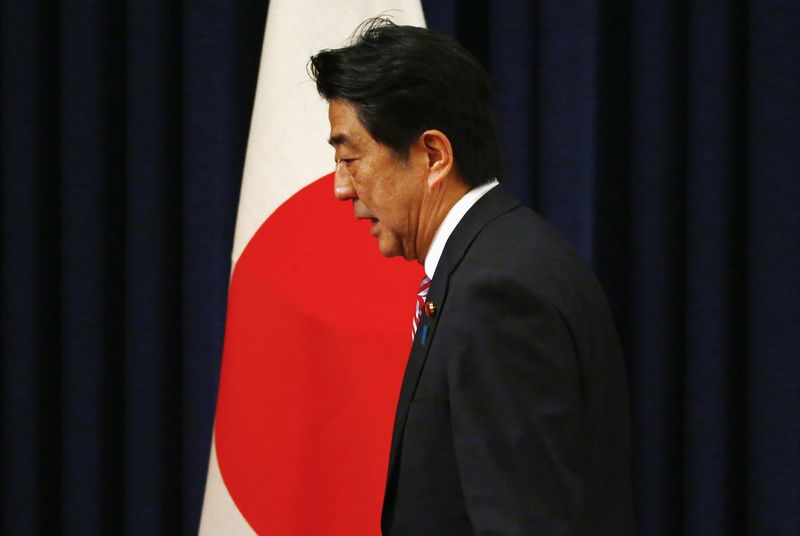TOKYO (Reuters) - Japan is considering ending its 14-year-old, $10 billion currency swap agreement with South Korea amid a deterioration in relations between the two countries, a government source told Reuters on Saturday.
The deal, launched in 2001 to help each other cope with any financial crisis, will expire on Feb. 23.
At one point, the framework of agreements had grown to as much as $70 billion, but it has fallen since 2012 after ties between the two countries worsened in a wake of a visit by South Korea's former president to disputed islands, known as Takeshima in Japanese and Dokdo in Korean.
"Japan plans not to extend the pact unless South Korea sends us a request," the source who declined to be identified said.
Most Asian countries including South Korea have built up huge foreign currency reserves since the Asian currency crisis in 1997 but swap agreements have become common as an additional way to cushion them from external shocks.
In a move to ease the diplomatic tensions, Japanese ruling party executive Toshihiro Nikai met South Korean President Park Geun-hye on Friday and gave her a letter from Japan's Prime Minister Shinzo Abe seeking better ties, according to the Yomiuri newspaper.
PM Abe has not met South Korea President Park for a bilateral summit since he took office in December 2012 due to rows over territory and the wartime past.
